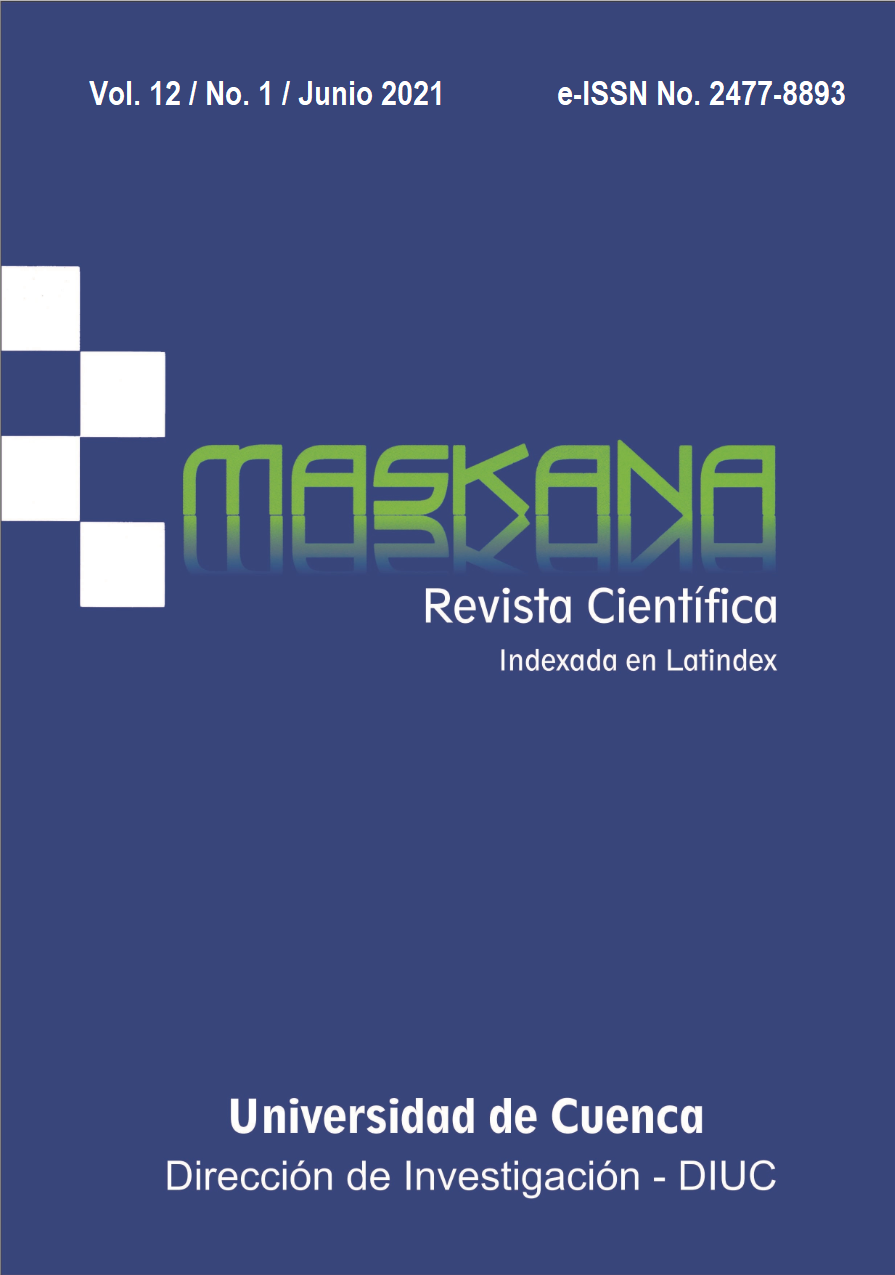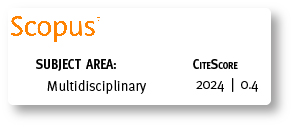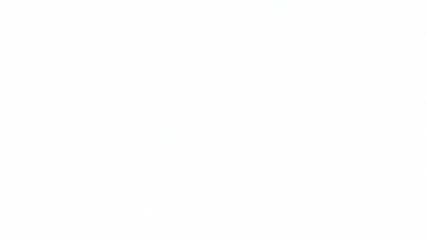Writing to publish: An experience with university researcher writing groups
DOI:
https://doi.org/10.18537/mskn.12.01.01Abstract
Scientific publications, as the means through which the academy generates and communicates knowledge, are commonly used both to evaluate the individual production of university research professors as well as that of higher-level institutions. In this context, writing-for-publication practices gain importance and deserve greater attention for their development. However, in Latin America there are few initiatives that support this situation. Writing groups constitute an adequate professional-academic development tool to face these deficiencies. Within them participants share drafts for their peers to comment on and, through collaboration and exchange with others, authors gradually adjust their writing to the demands of an audience, a key aspect in academic-scientific writing. This case study investigated participants’ perspectives to explore how writing groups support the progress of writing for publication. The analysis of 10 semi-structured interviews with participants indicated that these groups benefit their participants in three main areas. First, learning how to give and receive feedback in a safe and low-risk space helped members to lose the fear connected to this activity inherent in these literacy practices. At the same time, the possibility of receiving reading impressions from a real and varied audience allowed them to improve their drafts for better comprehensibility. Finally, sustained meetings over time motivated participants to mark a space in their agendas and establish a rhythm to their writing; in turn, making room to write highlighted the lack of time faced by research professors.
Downloads
Metrics
References
Aitchison, C., & Guerin, C. (2014). Writing groups for doctoral education and beyond: Innovations in practice and theory. Abingdon: Routledge.
Allen, T. J. (2019). Facilitating graduate student and faculty member writing groups: experiences from a university in Japan. Higher Education Research and Development, 38(3), 435-449. https://doi.org/10.1080/07294360.2019.1574721.
Altbach, P. G. (2013). Advancing the national and global knowledge economy: the role of research universities in developing countries. Studies in Higher Education, 38(3), 316-330. https://doi.org/10.1080/03075079.2013.773222
Antoniou, M., & Moriarty, J. (2008). What can academic writers learn from creative writers? Developing guidance and support for lecturers in higher education. Teaching in Higher Education, 13(2), 157-167. https://doi.org/10.1080/13562510801923229
Bautista, A., Monereo, C., & Scheuer, N. (2014). The peer review process as an opportunity for learning / La evaluación de pares como oportunidad para el aprendizaje. Infancia y aprendizaje / Journals for the Study of Education and Development, 37(4), 665-686. https://doi.org/10.1080/02103702.2014.977105
Bosanquet, A., McNeill, M., Huber, E., Cahir, J., & Jacenyik-Trawoger, C. (2012). Reflection, speed dating, and word clouds: Evaluating a writing group for early-career researchers. Compendium, 2(5), 9-18. Recuperado de: https://ojs.library.dal.ca/C2/article/view/3841/3511
Carr, M., Clarkin-Phillips, J., Rinehart, K. E., Edwards, F., & Ferrier-Kerr, J. (2020). Writing group commitment and caring: teacher educators talk about identities and agency in the Third Space of a writing group. Teacher Development, 24(5), 669-687. https://doi.org/10.1080/13664530.2020.1812708
Cassese, E. C., & Holman, M. (2018). Writing groups as models for peer mentorship among female faculty in political science. American Political Science Association, 51(2), 401-405. https://doi.org/10.1017/S1049096517002049
Castelló, M. (Ed.). (2007). Escribir y comunicarse en contextos científicos y académicos. Conocimientos y estrategias. Barcelona: Graó.
Consejo de Educación Superior (CES). (2017). Reglamento de carrera y escalafón del profesor e investigador del Sistema de Educación Superior. Quito, Ecuador.
Chois-Lenis, P. M., Guerrero-Jiménez, H. I., & Brambila-Limón, R. (2020). An analytical view of writing in graduate school: A review of documented practices in Latin America. Íkala, 25(2), 535-556. https://doi.org/10.17533/udea.ikala.v25n02a09
Colombo, L. (2013). Una experiencia pedagógica con grupos de escritura en el posgrado. Aula Universitaria, 15, 61-68. Recuperado de: http://bibliotecavirtual.unl.edu.ar/publicaciones/index.php/AulaUniversitaria/article/view/4368/6643
Colombo, L. (2017). Los grupos de escritura y el aprendizaje situado en el posgrado. Jornaleros, Revista Científica de Estudios Literarios y Lingüísticos, 3(3), 154-164. Recuperado de: https://ri.conicet.gov.ar/handle/11336/75731.
Colombo, L., & Rodas, E. L. (2020). Interdisciplinarity as an opportunity in Argentinian and Ecuadorian writing groups. Higher Education Research and Development. 40(2), 207-219. https://doi.org/10.1080/07294360.2020.1756750
Creswell, J. W. (2007). Qualitative inquiry & research design: Choosing among five approaches (2nd ed.). Thousand Oaks, CA: Sage Publications.
De Feo, J. D., Kiliç, Z., & Maseda, R. (2016). From productivity to process: Flipping the writing group. Academic Journal of Interdisciplinary Studies, 5(3), 544-550. https://doi.org/10.5901/ajis.2016.v5n3s1p544
Denzin, N. K., & Lincoln, Y. S. (Eds.). (2005). The Sage handbook of qualitative research (3rd ed.). Thousand Oaks, CA: Sage Publications.
Dwyer, A., Lewis, B., McDonald, F., & Burns, M. (2012). It is always a pleasure: exploring productivity and pleasure in a writing group for early career academics. Studies in Continuing Education, 32(4), 129-44. https://doi.org/10.1080/0158037X.2011.580734
Fajt, V., Gelvick, F. I., Loureiro-Rodríguez, V., Merton, P., Moore, G., Moyna, M. I., & Zarestky, J. (2013). Feedback and fellowship. Stories from a successful writing group. En Geller, A. E. & Eodice, M. (Eds.), Working with Faculty Writers (pp.163-173). Logan: Utah State UP.
Fallon, L. C., & Whitney, A. E. (2016). "It’s a two-way street”: Giving feedback in a teacher writing group. Teaching/Writing: The Journal of Writing Teacher Education, 5(1), 1-16. Article 4. Recuperado de: https://scholarworks.wmich.edu/wte/vol5/iss1/4.
Feyen, J. (2020). Collaboration among disciplines and UEPs is essential to improve their teaching and research profile. Case Ecuador. Maskana, 11(2), 5-17. https://doi.org/10.18537/mskn.11.02.01
Feyen, J., Milia, M., Van Hoof, H. B., Quinde, K., Ochoa, V., Abril, V., & Bojorque, J. (2016). Improving the publication visibility of Ecuador´s higher education system. Maskana, 7(2), 113-125. https://doi.org/10.18537/mskn.007.002.08
Galligan, L., Cretchley, P., George, L., Martin, K., McDonald, J., & Rankin, J. (2003). Evolution and emerging trends of university writing groups. Queensland Journal of Educational Research, 19(1), 28-41. Recuperado de: http://www.iier.org.au/qjer/qjer19/galligan.html
Gere, A. R. (1987). Writing groups: History, theory, and implications. Carbondale & Edwardsville: Southern Illinois UP.
Gómez Nashiki, A., Jiménez-García, S. A., & Moreles Vázquez, J. (2014). Publicar en revistas científicas, recomendaciones de investigadores de ciencias sociales y humanidades. Revista Mexicana de Investigación Educativa, XIX(60), 155-185. Recuperado de: https://www.redalyc.org/pdf/140/14029405008.pdf
Grant, B. (2006). Writing in the company of other women: Exceeding the boundaries. Studies in Higher Education, 31(4), 483-495. https://doi.org/10.1080/03075070600800624
Grant, B., & Knowles, S. (2000). Flights of imagination: Academic women be(com)ing writers. International Journal for Academic Development, 5(1), 6-19. https://doi.org/10.1080/136014400410060
Guerin, C. (2014). The gift of writing groups: critique, community and confidence. En C. Aitchison & C. Guerin (Eds.), Writing Groups for Doctoral Education and Beyond (pp. 138-141). Abingdon: Routledge.
Habibie, P., & Hyland, K. (2019). Introduction: The risks and rewards of scholarly publishing. En P. Habibie & K. Hyland (Eds.) Novice writers and scholarly publication: Authors, mentors, gatekeepers (pp.1-10). Switzerland: Palgrave Macmillan. doi:10.1007/978-3-319-95333-5
Haas, S. (2014). Pick-n-Mix: a typology of writers’ groups. En C. Aitchison & C. Guerin (Eds.), Writing groups for doctoral education and beyond: Innovations in practice and theory (pp. 30-47). Abingdon: Routledge.
Hicks, T., Busch-Grabmeyer, E., Hyler, J., & Smoker, A. (2013). Write, respond, repeat: A model for teachers’ professional writing groups in a digital age. En K. E. Pytash, R. E. Ferdig & T. V. Rasinski (Eds.), Preparing teachers to teach writing using technology (pp. 149-161). Pittsburg, PA: ETC Press.
Johnson, L., Roitman, S., Morgan, A., & MacLeod, J. (2017). Challenging the productivity mantra: academic writing with spirit in place. Higher Education Research and Development, 36(6), 1181-1193. https://doi.org/10.1080/07294360.2017.1300140
Ley Organica de Educación Superior, LOES (2010). Asamblea Nacional del Ecuador.
Lee, I. (2013). Publish or perish: The myth and reality of academic publishing. Language Teaching, 47(2), 1-12. https://doi.org/10.1017/S0261444811000504
Lock, J., Kjorlien, Y., Tweedie, G., Dressler, R., Eaton, S.E., & Spring, E. (2019). Advancing the writing of academics: Stories from the writing group. En N. Simmons & A. Singh (Eds.), Critical Collaborative Communities (pp. 55-65). Koninklijke Brill NV. https://doi.org/10.1163/9789004410985_005
Marquez-Guzman, S. & Gómez-Zermeño, M. G. (2018). Grupo virtual de escritura académica: Una e-innovación para impulsar la publicación científica. Revista Mexicana de Investigación Educativa, 23(76), 203-227. Recuperado de: http://www.scielo.org.mx/scielo.php?script=sci_abstract&pid=S1405-66662018000100203&lng= es&nrm=iso
Maxwell, J. A. (2013). Qualitative research design: An interactive approach (3rd ed.). London: Sage.
Maxwell, J. A. & Miller, B. (2008). Categorizing and connecting strategies in qualitative data analysis. En S. Hesse-Biber & P. Leavy (Eds.), Handbook of Emergent Methods (pp. 461-477). New York: The Guilford Press
McGrail, M., Rickard, C., & Jones, R. (2006). Publish or perish: A systematic review of interventions to increase academic publication rates. Higher Education Research & Development, 25(1), 19-35. https://doi.org/10.1080/07294360500453053
Morales, J. (2013). La universidad investigadora. Revista de la Facultad de Ciencias Médicas de la Universidad de Cuenca, 3(11), 68-73.
Murray, R. (2013). ‘It’s not a hobby’: Reconceptualizing the place of writing in academic work. Higher Education, 66, 79-91. https://doi.org/10.1007/s10734-012-9591-7
Navarro, F. (2017). Estudios latinoamericanos de la escritura en educación superior y contextos profesionales: Hacia la configuración de un campo disciplinar propio. Lenguas Modernas, 50, 8-14. Recuperado de: https://lenguasmodernas.uchile.cl/index.php/LM/article/view/49247/51714.
Nygaard, L. (2015). Publishing and perishing: An academic literacies framework for investigating research productivity. Studies in Higher Education, 42(3), 519-532. https://doi.org/10.1080/03075079.2015.1058351
Olszewska, K., & Lock, J. (2016). Examining success and sustainability of academic writing: A case study of two writing-group models. Canadian Journal of Higher Education, 46(4), 132-145. https://doi.org/10.47678/cjhe.v46i4.186346
Plan Nacional de Desarrollo 2017-2021 - Toda una Vida. (2017). Ecuador.
Plummer, L., Pavalko, E., Alexander, J., & McLeod, J. (2019) Faculty Writing Groups: A Tool for Providing Support, Community, and Accountability at Mid-Career. En A. G. Welch, J. Bolin, & D. Reardon (Eds) Mid-Career Faculty: Trends, Barries, and Possibilities (pp. 126-142). Boston: Brill.
Rijlaarsdam, G., & van den Berg, H. (2006). Writing process theory: A functional dynamic approach. En C. A. MacArthur, S. Graham, & J. Fitzgerald (Eds.), Handbook of writing research (pp. 41-53.). New York: The Guilford Press.
Rivera García, C. G., Espinosa Manfugás, J. M., & Valdés Bencomo, Y. D. (2017). La investigación científica en las universidades ecuatorianas. Prioridad del sistema educativo vigente. Revista Cubana Educación Superior, 2, 113-125. Recuperado de: http://scielo.sld.cu/pdf/rces/v36n2/rces11217.pdf
Rodas Brosam, E., & Colombo, L. (2018). Writing groups in Ecuador as support for academics on the road to publication. Revista Pucara 29, 147-167. https://doi.org/10.18537/puc.29.01.07
Seidman, I. E. (2006). Interviewing as qualitative research: A guide for researchers in education and the social sciences (3rd. ed.). New York: Teachers College Press.
Sheridan, A., O'Sullivan, J., Fisher, J., Dunne, K., & Beck, W. (2019). Responding to institutional climate change in higher education: the evolution of a writing group to group peer mentoring. Gender and Education, 32(7), 891-907. https://doi.org/10.1080/09540253.2019.1594705
Smith, T., Molloy, J., Kassens-Noor, E., Li, W., & Colunga, M. (2013). Developing a heuristic for multidisciplinary faculty writing groups. En A. E. Geller, & M. Eodice (Eds.), Working with faculty writers (pp. 175-188). Salt Lake City: University of Utah Press.
Stensaker, B. (2017). Academic development as cultural work: responding to the organizational complexity of modern higher education institutions, International Journal for Academic Development, 23(4), 274-285. https://doi.org/10.1080/1360144X.2017.1366322
Sutherland, K. A. (2018) Holistic academic development: Is it time to think more broadly about the academic development project? International Journal for Academic Development, 23(4), 261-273. https://doi.org/10.1080/1360144X.2018.1524571
Sword, H., Trofimova, E., & Ballard, M. (2018). Frustrated academic writers. Higher Education Research and Development, 37(4), 852-867. https://doi.org/10.1080/07294360.2018.1441811
Wilson, S., & Cutri, J. (2019). Negating isolation and imposter syndrome through writing as product and as process: The impact of collegiate writing networks during a doctoral programme. En L. Pretorius, L. Macaulay, & B. Cahusac de Caux (Eds.), Wellbeing in doctoral education: Insights and guidance from the student experience (pp. 59-76). Singapore: Springer.
Published
How to Cite
Issue
Section
License
Copyright (c) 2021 Elisabeth Rodas, Laura Colombo, María-Daniela Calle, Guillermo Cordero

This work is licensed under a Creative Commons Attribution 4.0 International License.
Copyright © Autors. Creative Commons Attribution 4.0 License. for any article submitted from 6 June 2017 onwards. For manuscripts submitted before, the CC BY 3.0 License was used.
![]()
You are free to:
 |
Share — copy and redistribute the material in any medium or format |
 |
Adapt — remix, transform, and build upon the material for any purpose, even commercially. |
Under the following conditions:
 |
Attribution — You must give appropriate credit, provide a link to the licence, and indicate if changes were made. You may do so in any reasonable manner, but not in any way that suggests the licenser endorses you or your use. |
| No additional restrictions — You may not apply legal terms or technological measures that legally restrict others from doing anything the licence permits. |









